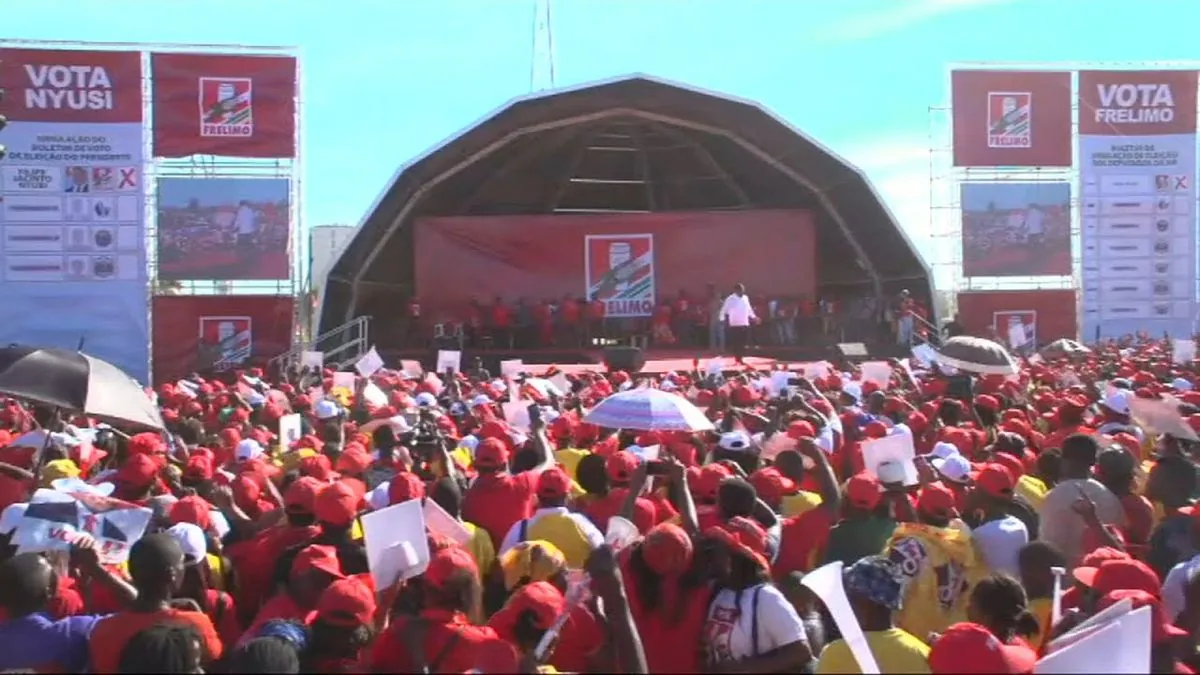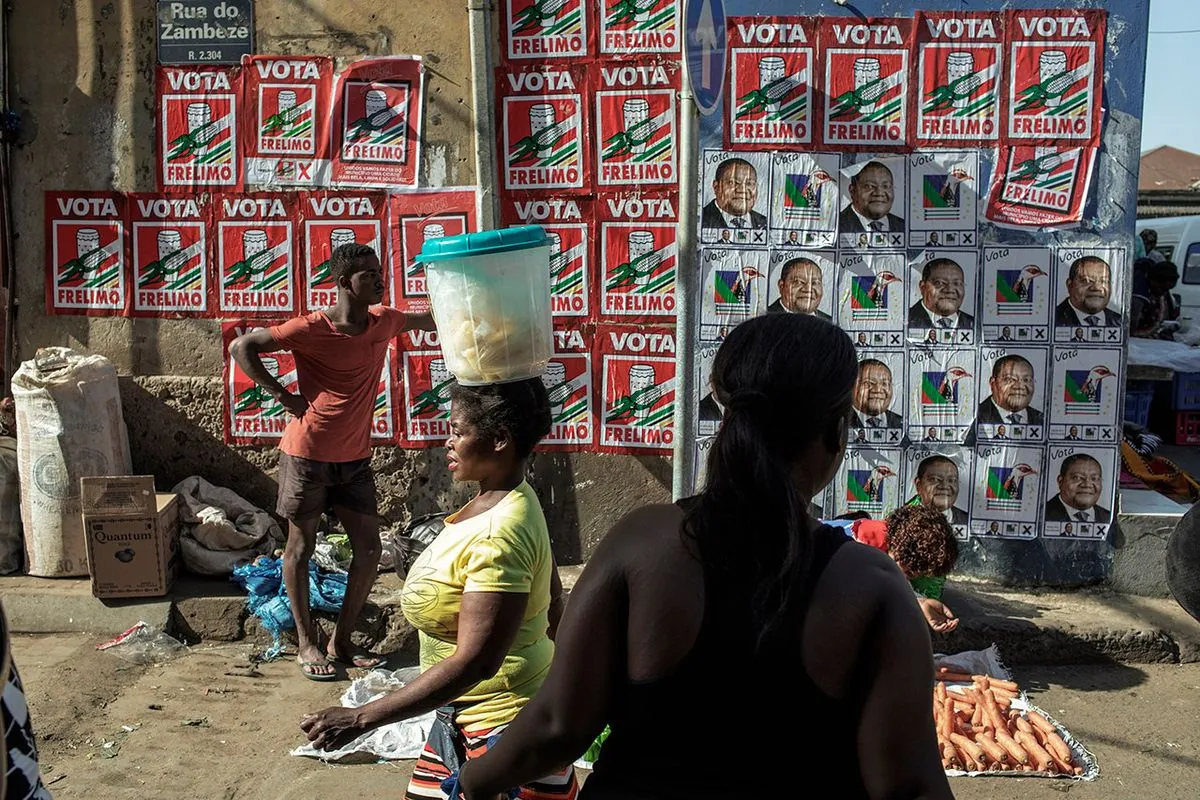Mozambique's Crucial Election: Four Candidates Vie for Presidency
Mozambique prepares for pivotal elections on October 9, 2024, as President Nyusi's tenure ends. Four candidates compete amidst ongoing conflict in Cabo Delgado, shaping the nation's future.

Mozambique, a nation of approximately 32 million people, is gearing up for a significant political event. On October 9, 2024, the country will hold presidential and parliamentary elections, marking the conclusion of President Filipe Nyusi's two-term tenure. This electoral process unfolds against a backdrop of ongoing challenges, including the fight against Islamic State-linked militants in the gas-rich province of Cabo Delgado.
The conflict in Cabo Delgado has had far-reaching consequences. In 2021, a major attack forced TotalEnergies to suspend its $20 billion liquefied natural gas project, highlighting the security concerns in the region. This situation underscores the complex interplay between Mozambique's vast natural resources and its political stability.
Four candidates are competing to succeed President Nyusi:
Daniel Chapo, 47, represents the ruling Frelimo party, which has governed Mozambique since its independence from Portugal in 1975. Despite his relatively low profile in national politics, Chapo is considered the frontrunner due to Frelimo's historical dominance. His background as a TV and radio presenter and constitutional law instructor adds a fresh perspective to the party's image.
Ossufo Momade, 63, leads the main opposition party, Renamo. A former general during the 16-year civil war that ended in 1992, Momade played a crucial role in signing the 2019 peace agreement with Frelimo. His previous presidential bid in 2019 resulted in a second-place finish with approximately 22% of the vote.
Venancio Mondlane, running as an independent candidate, is viewed as a rising political figure with significant appeal among younger voters. Originally affiliated with Renamo, Mondlane's campaign faced a setback when the Constitutional Council withdrew his supporting party's registration in August 2024.
Lutero Simango, 64, heads the Mozambique Democratic Movement (MDM), the country's third-largest party. Simango emphasizes the MDM's focus on development and its non-militarized history, distinguishing it from both Frelimo and Renamo.

This election is taking place in a country with a rich and complex history. Mozambique gained independence in 1975 and subsequently experienced a prolonged civil war from 1977 to 1992. The nation has since made significant strides in economic development, partly due to its abundant natural resources, including vast natural gas reserves.
Mozambique's political landscape reflects its diverse challenges and opportunities. The country boasts a young population, with a median age of about 17 years, highlighting the importance of addressing youth concerns in this election. Additionally, Mozambique's membership in organizations such as the African Union, the Commonwealth of Nations, and the Southern African Development Community (SADC) underscores its regional and international significance.
As the election approaches, Mozambique faces the dual challenge of ensuring a fair and transparent electoral process while continuing to address security concerns, particularly in Cabo Delgado. The outcome of this election will be crucial in shaping the country's future trajectory, balancing economic development with political stability and social progress.
"We are committed to conducting a free, fair, and transparent election that reflects the will of the Mozambican people. All necessary measures have been taken to ensure the integrity of the voting process across all provinces, including Cabo Delgado."
The upcoming election represents a critical juncture for Mozambique, a nation rich in natural resources and cultural diversity. As the country navigates its political future, the international community watches closely, recognizing the importance of stability and democratic progress in this strategically significant Southern African nation.


































